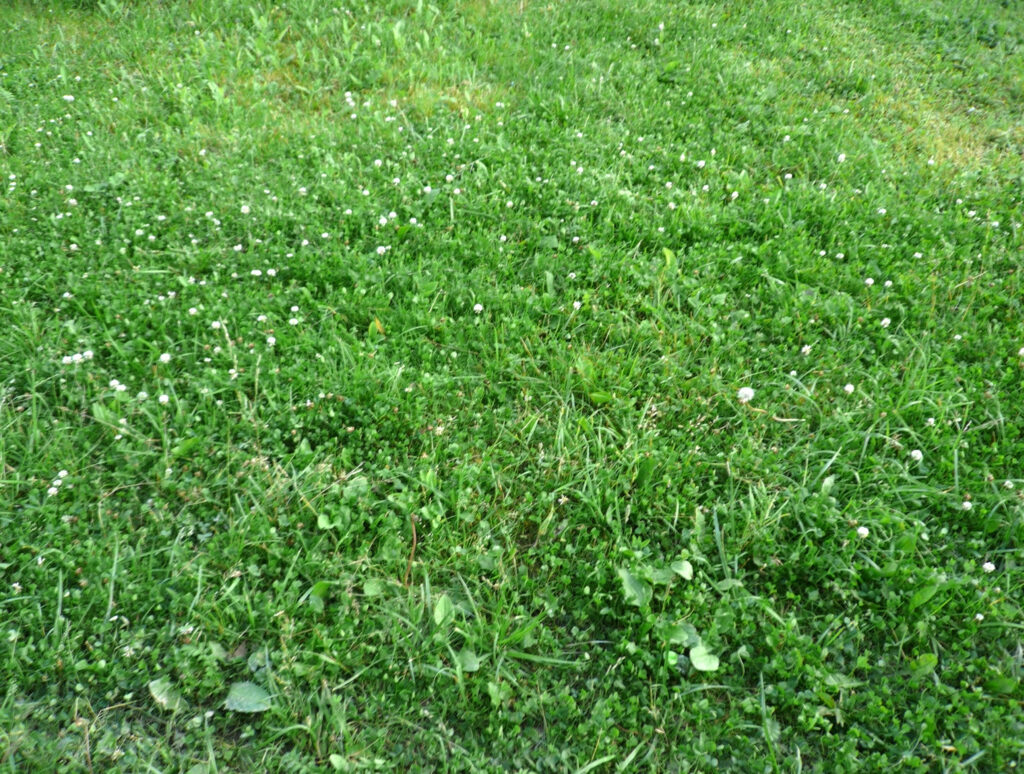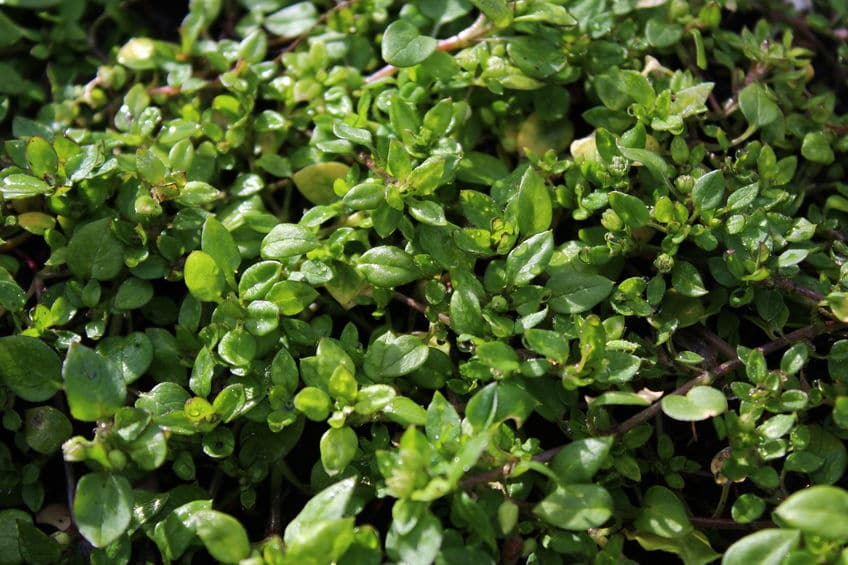Chickweed might look harmless with its tiny white flowers, but this fast-spreading weed can quickly take over your lawn if left unchecked. The good news? You can eliminate it—and keep it from coming back. Here’s how to tackle chickweed the right way, whether you prefer DIY methods or professional help.
Why Do I Have So Much Chickweed in My Lawn?
Chickweed thrives in weak, thin grass with poor soil conditions. It loves compacted soil, excessive moisture, and shady areas. If your lawn lacks proper fertilization or has drainage issues, you’re creating the perfect environment for chickweed to spread rapidly.
Why Is Chickweed a Problem?
Chickweed thrives in thin, weak grass and moist, shady areas. It spreads aggressively, stealing nutrients and sunlight from your turf. If you see:
✅ Small, oval leaves in pairs
✅ Tiny white, star-shaped flowers
✅ A low, mat-forming growth habit
…then you’ve got chickweed.
Need help identifying lawn weeds? Check out our Texas Lawn Weed Identification Guide to confirm what’s invading your yard.
When to Spray for Chickweed?
The best time to spray chickweed is in early spring or fall when temperatures are between 45-65°F. Avoid spraying during extreme heat or when rain is expected within 24 hours. For pre-emergent control, apply herbicide in late summer before seeds germinate.
How to Kill Chickweed Naturally (DIY Methods)
1. Hand-Pulling (Best for Small Patches)
-
Pull after rain (when soil is soft)
-
Remove the entire root system (or it grows back)
-
Dispose of weeds (don’t compost—seeds can spread!)
2. Improve Lawn Health
Chickweed loves weak grass. Fight back by:
-
Aerating (to reduce soil compaction)
-
Overseeding (to crowd out weeds)
-
Proper fertilization (healthy grass = fewer weeds)
3. Homemade Weed Killer
Mix:
-
1 gallon vinegar
-
1 cup salt
-
1 tbsp dish soap
Spray directly on chickweed (avoid grass on sunny days to prevent burning).
What Is the Best Weedkiller for Chickweed?
For effective control, use selective herbicides containing 2,4-D, dicamba, or MCPP. Products like Ortho Weed B Gon or Trimec work well against chickweed while being safe for most grasses. For organic options, look for iron-based herbicides.
Chemical Treatments for Stubborn Chickweed
If chickweed has taken over, selective post-emergent herbicides (like those with dicamba or 2,4-D) work well. Always:
🔹 Apply in cool weather (spring/fall)
🔹 Follow label instructions carefully
🔹 Avoid spraying near desirable plants
Pre-emergent herbicides (applied in early fall) can also prevent chickweed seeds from sprouting.
How Do You Control Common Chickweed?
The most effective control combines herbicides with cultural practices. Use post-emergent sprays for existing weeds and pre-emergent in fall to prevent new growth. Maintain a thick, healthy lawn through proper mowing, fertilization, and aeration to outcompete chickweed naturally.
Read our article about how to improve water retention in lawn.
How to Keep Chickweed from Coming Back
-
Mow high (3-4 inches shades out weeds)
-
Water deeply but less often (chickweed loves damp soil)
-
Test your soil (adjust pH if needed)
Need Professional Chickweed Control?
If chickweed keeps returning (or you’d rather not deal with it yourself), Ryno Lawn Care offers targeted weed control services to restore your lawn’s health.
Have you battled chickweed? Share your best tips in the comments! 🌱🚫


